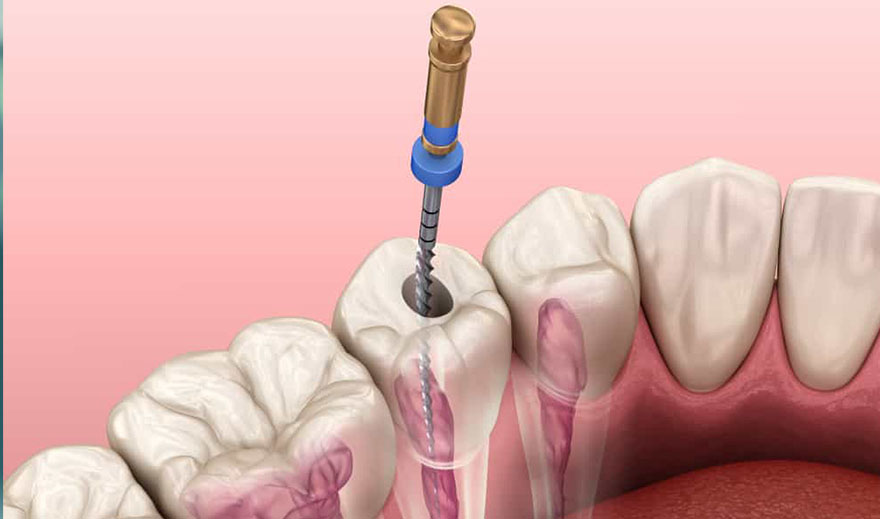
Root Canal Treatment at Antalya Dental Hospital, Turkey
Root Canal Treatment: What Are They, Benefits and Cost
Root canal treatment (endodontics) is a dental procedure used to treat infection at the centre of a tooth. Root canal treatment is not painful and can save a tooth that might otherwise have to be removed completely.
Relieve pain and save your natural tooth.
Many tooth problems like extensive decay or impact injuries, can lead to infection or death of the nerve tissue inside a tooth. This can lead to various symptoms like severe pain, increased sensitivity, swelling of the gums, bad breath or tooth discoloration.
A root canal treatment, also called endodontic therapy, is a safe and straightforward procedure that treats the inside of the infected tooth, relieves pain and saves your natural tooth.
Gentle and painless endodontic therapy.
The pulp which contains nerves are central to a tooth. An infected or inflamed pulp is often the cause of pain. During a root canal treatment, our microscopic endodontist at Dental Clinic Antalya carefully removes the pulp inside the teeth, disinfects the root canals and places a filling to hermetically seal the space.
Microscopic Endodontists
Our Root Canal Specialists are two of the Antalya’s most prominent leaders in the field of microscopic endodontics. Their specialized training, years of experience and expertise in using state-of-the-art dental microscope allows them to view the smallest details inside a tooth which means that you only get the best, most precise results. Patients who have had their root canal treatment done are often amazed with the level of comfort they experienced during their appointment.
Need more advice?
If you need free and impartial advice about your oral health, contact our Antalya Dental Hospital Helpline by email or call +90 242-999-1227 (local rate call in the Turkey).
Our Antalya Dental Hospital Helpline is completely confidential and has helped almost 20,000+ people. Contact our experts by telephone, email or online enquiry, Monday to Friday, 08:00 - 18:00.
Frequently Asked Questions About Dental Health
FAQs
Our FAQs are the most commonly-asked questions put to our Dental Helpline over the last year. If you have a question for us, you can ask our Dental Helpline by telephone or email. Alternatively, please take a look at our library of oral health information, which contains a wide range of oral health advice in an easy-to-understand Q&A format.
There are many toothpastes, and some are designed for different needs. There are toothpastes for gum health, sensitive teeth and for smokers, ones with anti-bacterial agents, and others which help to restore the natural whiteness of your teeth. Your dental team can recommend the most suitable toothpaste for your needs.
The cost will vary depending on what treatment you need. There may be extra costs if there are complications and you need more treatment. Ask your dental team for a treatment plan and a written estimate before you start treatment.
These contain a dye. After brushing and cleaning in between your teeth, you can use a disclosing tablet or solution to dye any plaque that hasn’t been removed. This can help to show any places you are missing when brushing. You can easily remove the dye afterwards by brushing.
It is important to wear a professionally made mouthguard whenever you play sport that involves physical contact or moving objects. This includes: cricket, hockey and football – which can cause broken and damaged teeth; and American football, boxing and rugby – which can all cause broken or dislocated jaws. A mouthguard will help protect against these happening.
Your Best Smile Starts Here
Follow along as Antalya Dental Hospital expert dentists share the latest oral health trends that impact you and your family’s overall health. Dentistry and Oral Health Blog is a rich source of information about dentistry, dental care, tips, news and more. Subscribe to our blog, newsroom and social media.







